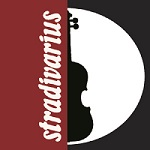The Mass Qoelet is a work in which the text of the Mass is accompanied by the recitation of verses from the Book of Qoelet (Ecclesiastes) contained in the Old Testament, emphasizing the purely philosophical issues contained in it. The ten movements that make up the composition express feelings and describe peculiar situations, using the music, composed by Roberto Passarella, to create a charming atmosphere and suitable to follow the narration, performed by Maurizio Boldrini.
It is a musical work that incorporates a neoclassical style, harking back to various periods, such as the ‘500 and ‘700, fusing them with "contemporary" harmonies and rhythms, taking example from the great Polish composer K.Penderecki.
The meaning of the work stems from the deepest question about today's events, questions which contemporary society does not always seems to be able to respond; the lack of landmarks, the single thought and the highly pronounced tendency to individualism along with today’s several mined opportunities of self-fulfilment are issues that we feel close in the era of globalization, where everything and anything mingle making us protagonists of contradictions.
Musically, what should be noted is the original and peculiar use of the bandoneon (played by Roberto Passarella), an instrument born in Germany in the mid-nineteenth sec., adopted in South America for folk music, that we find here in its original role (brought to light by the great bandoneonist Alejandro Barletta), which is to replace the small organs in masses and liturgical sacred works.




 My Wish List
My Wish List



